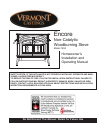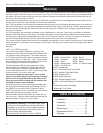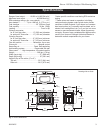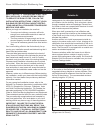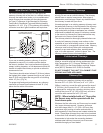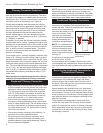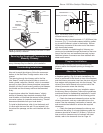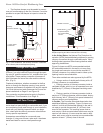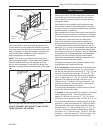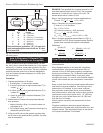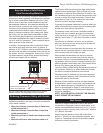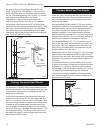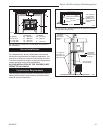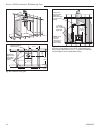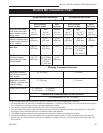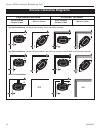
3
Encore 1450 Non-Catalytic Woodburning Stove
30002425
Specifications
1"
(44 mm)
25"
(635 mm)
Top exit
flue collar
height
27"
(686 mm)
25"
(654 mm)
18"
(470 mm)
7"
(184 mm)
27"
(686 mm)
22"
(565 mm)
15
"
(394 mm)
5"
(127 mm)
2" (73 mm)
23
"
(603 mm)
15"
(381 mm)
3"
(95 mm)
22
"
(578 mm)
Encore 1450
dimensions
Fig. 1 Encore dimensions.
Drawings Not to Scale
Range of heat output ...........10,600 to 24,050 Btu’s/Hr*
Maximum heat output ........................ 40,000 Btu’s/Hr**
EPA emissions ratings, g/hr, non-catalytic ...............0.7*
Area heated*** ............... Up to 1900 sq. ft. (175 sq. m.)
Fuel size/type ...................................20” (508 mm) logs
Fuel capacity ........................................... 40 lbs. (18kg)
Loading ....................................................... Front or top
Chimney connector:
for 8” oval flue collar ................ 8” (203 mm) diameter
for optional 6” flue collar .......... 6” (152 mm) diameter
Chimney flue size:
for 8” oval flue collar ................8” (203 mm) minimum
for optional 6” flue collar ..........6” (152 mm) minimum
Flue exit position ....................... Reversible, top or rear
Primary air ............................................. Manual control
Secondary air ..............................Fixed, Self-regulating
Ash handling system .....................Removable ash pan
Glass panel ........ High-temperature, IR coated ceramic
Weight ................................................ 395 lbs. (179 kg)
Width (leg-to-leg) ..................................... 27” (686 mm)
Depth (leg-to-leg) .................................... 15” (381 mm)
Height to top of flue collar, (6” or 8”)
Top exit .............................................. 25¹⁄₄” (641 mm)
Rear exit ............................................ 26¹⁄₂” (673 mm)
*Under specific conditions used during EPA emissions
testing.
**These values are based on operation in building
code-conforming homes under typical winter climate
conditions in New England. If your home is of nonstan-
dard construction (e.g. unusually well-insulated, not in-
sulated, built underground, etc.) or if you live in a more
severe or more temperate climate, these figures may
not apply. Since so many variables affect performance,
consult your Vermont Castings’ Authorized Dealer to
determine realistic expectations for your home.



